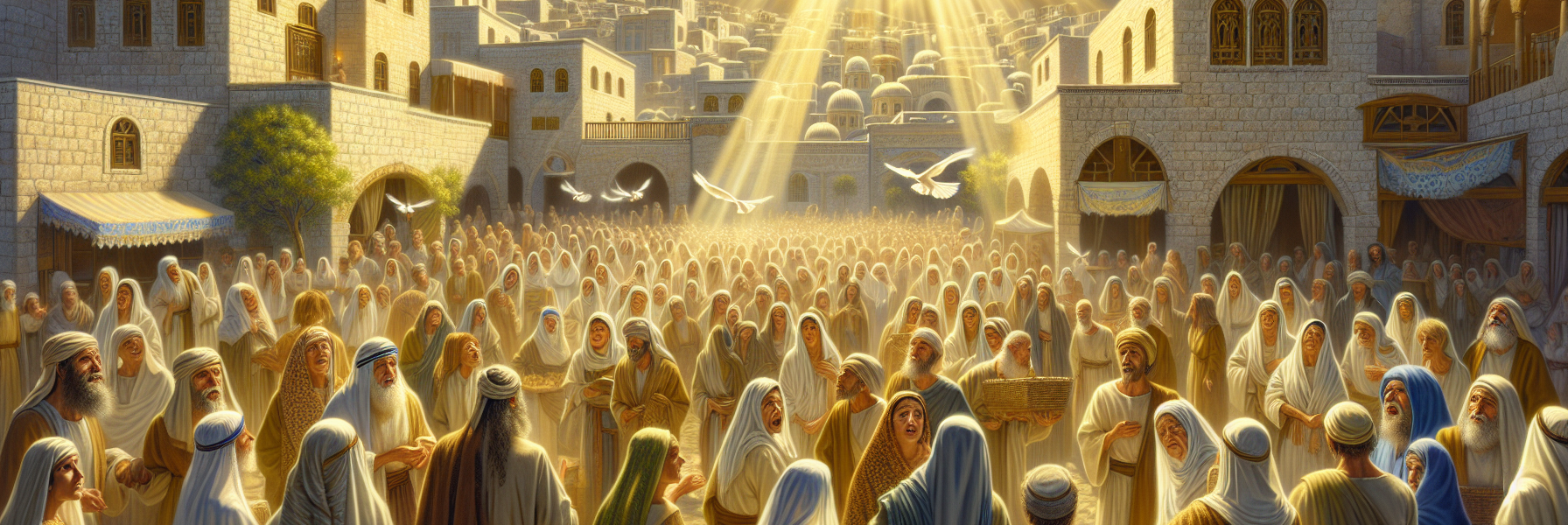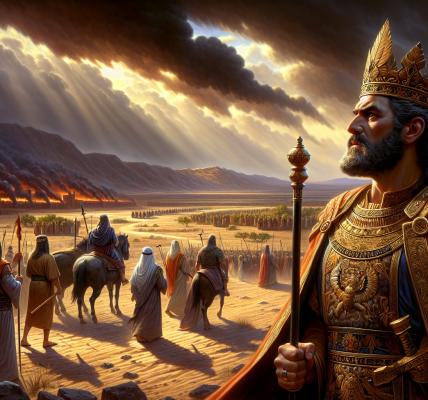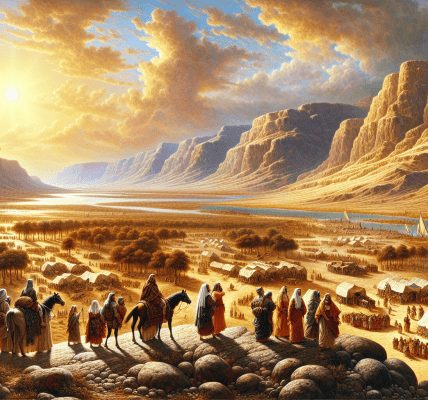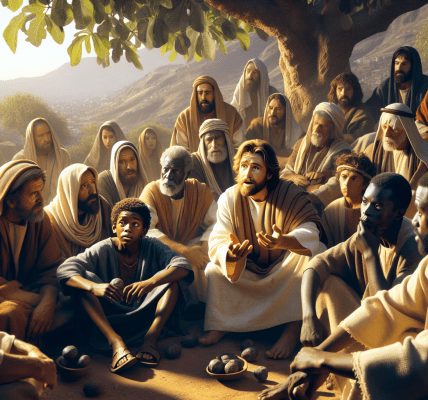**The Choosing of the Seven**
The sun hung high over Jerusalem, casting golden light upon the white stone walls of the city. The early Church was growing rapidly, its numbers swelling daily as more souls turned to the faith of the risen Christ. The apostles, filled with the Holy Spirit, preached with boldness, and miracles followed their steps. Yet, as the community of believers multiplied, so too did the needs among them.
Among the disciples were those who had come from far lands—Hellenists, Jews of Greek descent who had returned to Jerusalem, bringing with them their language and customs. The Hebrew widows among the believers received their daily provisions faithfully, but whispers began to stir that the Hellenist widows were being overlooked in the distribution of food. Murmurs of discontent reached the ears of the apostles, a discordant note in the symphony of their unity.
One evening, as the apostles gathered in the courtyard of Solomon’s Portico, Peter stood, his face lined with both wisdom and weariness. Around him sat the other eleven, their eyes fixed upon him as the murmurs of the people echoed in the distance.
“Brothers,” Peter began, his voice steady, “it is not right that we should neglect the word of God to serve tables.”
A murmur of agreement rose among them. John leaned forward, his fingers steepled in thought. “The Lord has called us to preach, to pray, to lay hands upon the sick and proclaim His name. Yet the people hunger, not only for bread but for justice.”
James, the son of Alphaeus, nodded. “Let us choose men from among the believers—men full of the Spirit and wisdom—to oversee this duty, so that we may devote ourselves to prayer and the ministry of the word.”
The proposal pleased the whole gathering. The following morning, the apostles called the multitude of disciples together. The air was thick with anticipation as men and women from all walks of life pressed close, their faces alight with faith.
Peter raised his hands for silence. “Brothers and sisters, select from among you seven men of good repute, full of the Spirit and wisdom, whom we may appoint over this matter.”
A ripple of discussion passed through the crowd. Eyes turned toward those known for their faithfulness. Soon, seven names rose above the rest—Stephen, a man whose face seemed to shine with divine favor; Philip, whose zeal for God was evident in all he did; Prochorus, Nicanor, Timon, Parmenas, and Nicolas, a proselyte from Antioch. Each was known for his devotion, his integrity, and his willingness to serve.
The apostles prayed over them, their hands resting upon the heads of the seven as the sun bathed them in light. Then, with great solemnity, they laid hands upon them, setting them apart for this holy service.
And so, the word of God continued to spread, the number of disciples multiplying greatly in Jerusalem. Even many of the priests, seeing the grace upon these men, began to obey the faith.
But among them, none shone so brightly as Stephen. Full of faith and power, he performed great wonders and signs among the people. His words carried the fire of heaven, and his face, when he spoke of Christ, seemed like that of an angel.
Yet not all hearts were open to the truth. In the shadows, men of the Synagogue of the Freedmen—Cyrenians, Alexandrians, and others—began to stir with jealousy. They argued with Stephen, but they could not withstand the wisdom and the Spirit by which he spoke.
And so, the stage was set for a greater trial, for the enemy of truth does not rest when light shines brightest. But for now, the Church rejoiced, united in purpose, as the apostles preached and the seven served, and the name of Jesus was glorified in all.




